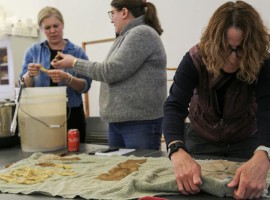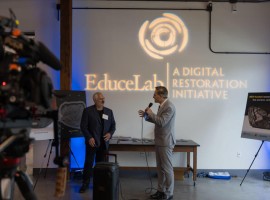Research Advancing Kentucky: Fighting alcohol’s toll in Appalachia
Researchers at the University of Kentucky play an important role in advancing the health, well-being and future of our Commonwealth.
Much of that work is done with support from the National Institutes of Health (NIH), its institutes and centers. That support allows our researchers to find answers to many of the critical health issues facing Kentuckians.
Madison Blanton is a Ph.D. student in the College of Pharmacy who’s working in the Messaoudi Lab in the Department of Microbiology, Immunology, and Molecular Genetics in the UK College of Medicine.
She is the recipient of a prestigious Ruth L. Kirschstein National Research Service Award predoctoral fellowship through the the National Institute on Alcohol Abuse and Alcoholism.
This support allows Blanton to obtain individualized, mentored research training while conducting dissertation research.
Her research is focused on understanding how chronic alcohol misuse rewires the immune system and increases the likelihood of alcohol-related organ damage. Kentucky has a high rate of alcohol misuse. In 2023, over 15% of Kentuckians reported partaking in unhealthy drinking patterns at least once a month.
NIH funding not only supports Blanton’s research in this area, but it also goes toward costs like tuition, a living stipend and health care coverage. As an Appalachian native, she’s working to address issues that impact the region.
“My colleagues and I at UK are passionate about building a healthier and stronger Commonwealth,” said Blanton. “We believe our commitment to advancing treatment options for patients with alcohol-induced immune deficiencies will improve the quality of life of Kentuckians across the great Commonwealth who are fighting daily to overcome substance abuse.”
Blanton and other members of our research community shared the importance of NIH-funded research here at UK. Learn more about the impactful work done in this video series from Research Communications.
Learn more about each featured researcher.
Research in the news:




